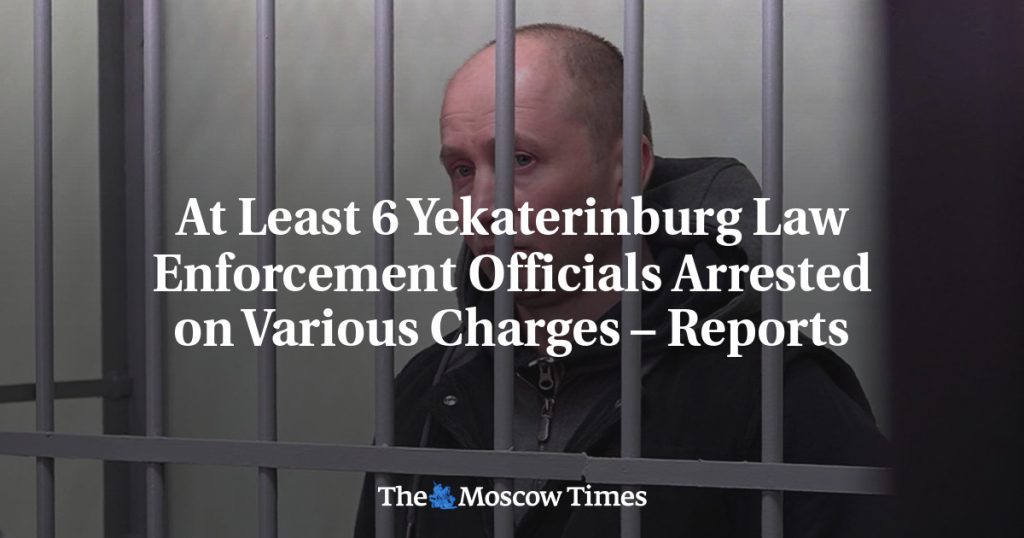In Yekaterinburg, Russia, at least six former and current law enforcement officials have been arrested over the past week on various charges. Among those arrested is Andrei Dyakov, who heads the anti-corruption department at the Sverdlovsk region branch of Russia’s Interior Ministry. Dyakov has been charged with abuse of power and bribery, with authorities alleging that he accepted 200 million rubles in bribes, which he denies. Dyakov has been ordered to remain in pre-trial detention until July 20.
Another official arrested in Yekaterinburg is Sergei Loginov, who heads the regional branch of Russia’s Federal Tax Service. While the agency has denied reports of his arrest, Loginov’s biography has disappeared from its website and Marina Khan is now listed as the acting head. It is unclear what charges Loginov may be facing, and there are reports citing anonymous sources that officials from Moscow are trying to keep the case against him quiet.
In addition to Dyakov and Loginov, former anti-drug police chief Vladislav Sobolev and four other officers have been charged over a 2000 triple homicide. Sobolev, who was dismissed in the same year of the killings, had previously been sentenced to 15 years in prison on drug dealing charges in 2006. It is unknown if these cases against the officials are connected or if they are part of a broader crackdown on corruption within the region’s security services.
These recent arrests in Yekaterinburg raise questions about corruption and misconduct within Russia’s law enforcement agencies. The charges against Dyakov, Loginov, and Sobolev highlight the serious nature of the allegations, which range from bribery to murder. The involvement of high-ranking officials in such crimes underscores the challenges faced in combating corruption and upholding the rule of law in Russia.
The arrests of these law enforcement officials could potentially have far-reaching implications for the region’s security services. The removal of individuals in leadership positions due to corruption or criminal activities may require substantial reforms and oversight to address systemic issues. The cases also point to the need for increased transparency and accountability within Russia’s law enforcement agencies to prevent future instances of misconduct.
Overall, the arrests in Yekaterinburg signal a push for accountability and integrity within Russia’s law enforcement community. By targeting individuals suspected of corruption and criminal behavior, authorities are sending a message that such actions will not be tolerated. The outcome of these cases will likely have a significant impact on efforts to combat corruption and improve governance in the region. As the investigations progress, more details may emerge about the extent of corruption within the security services and the measures being taken to address these challenges.


